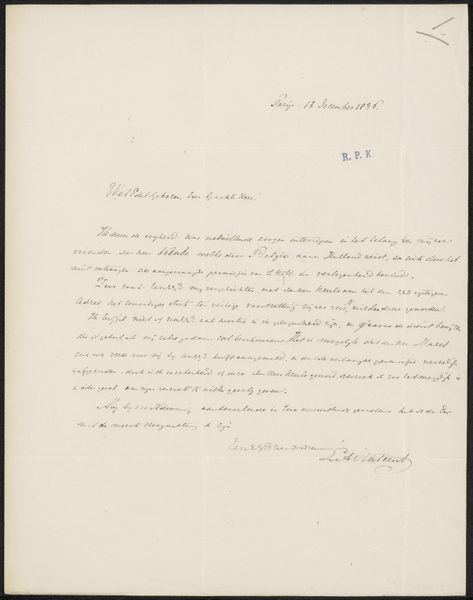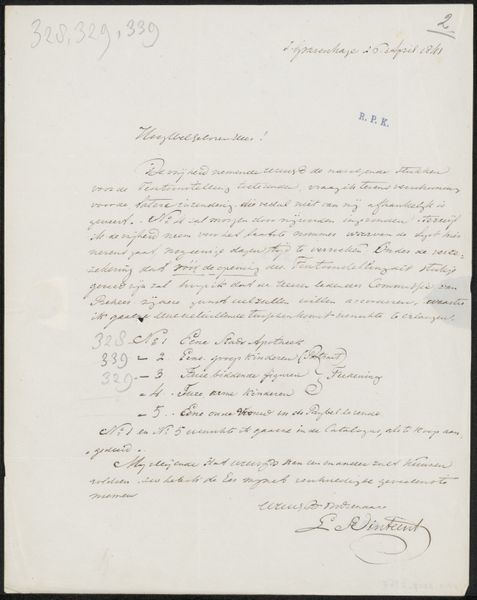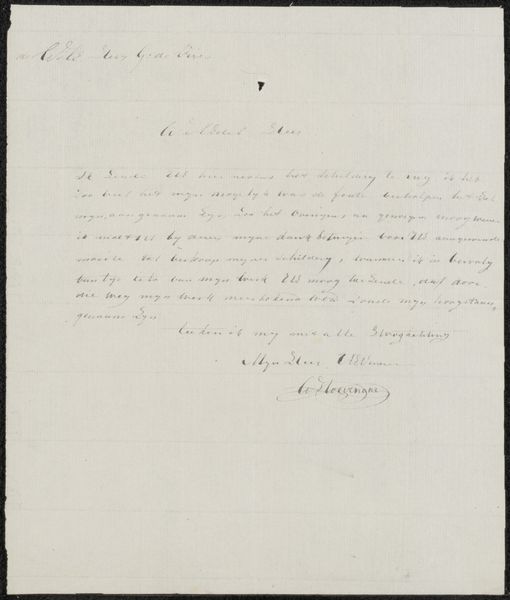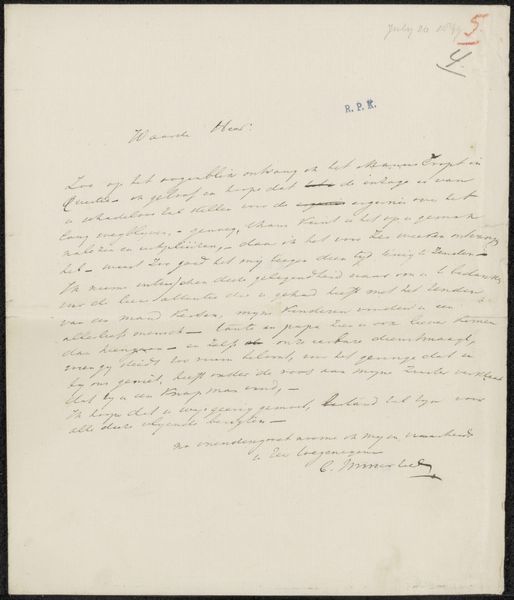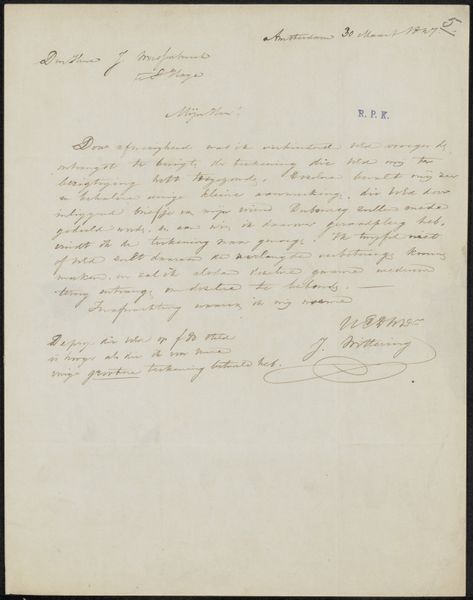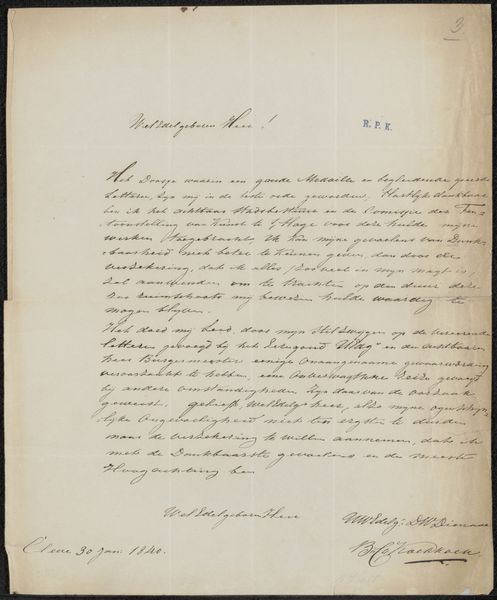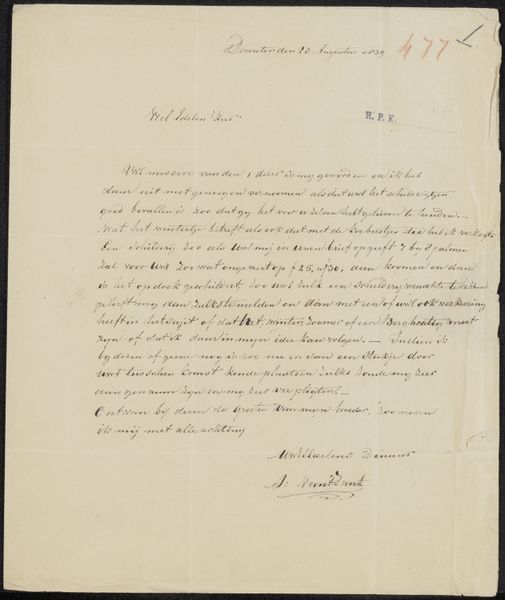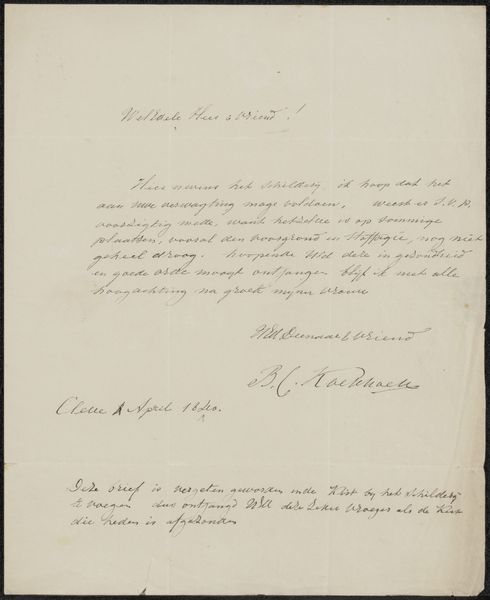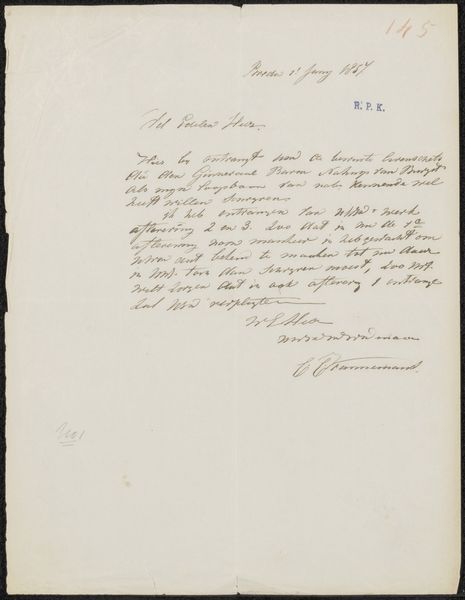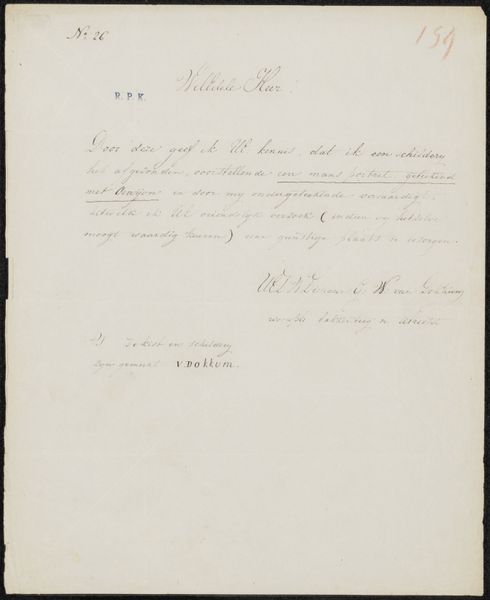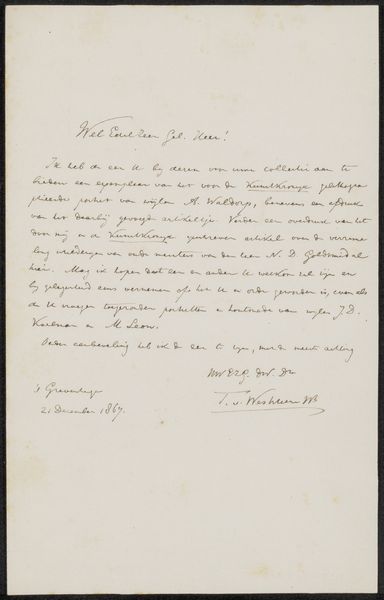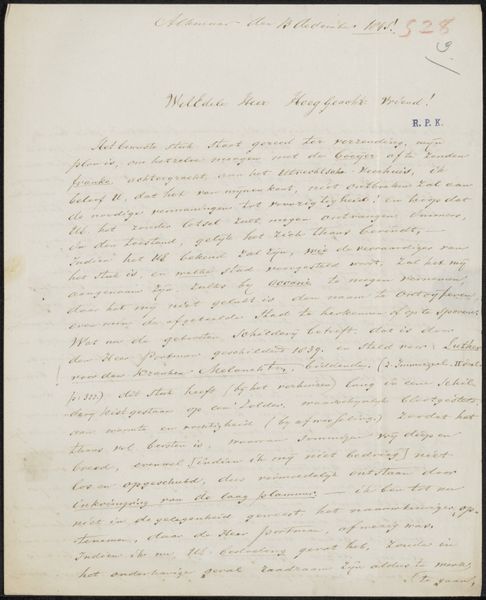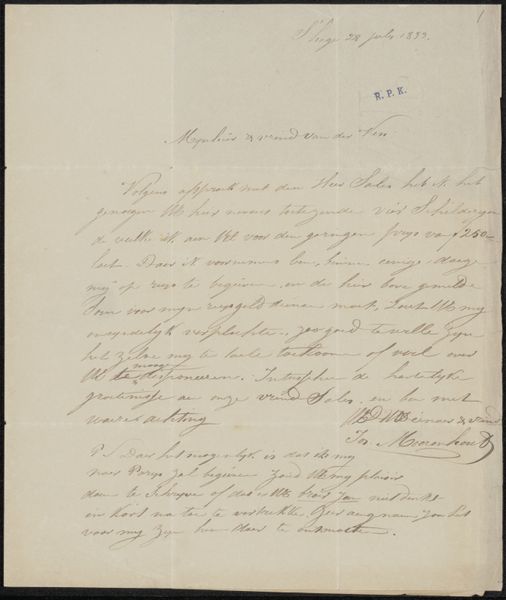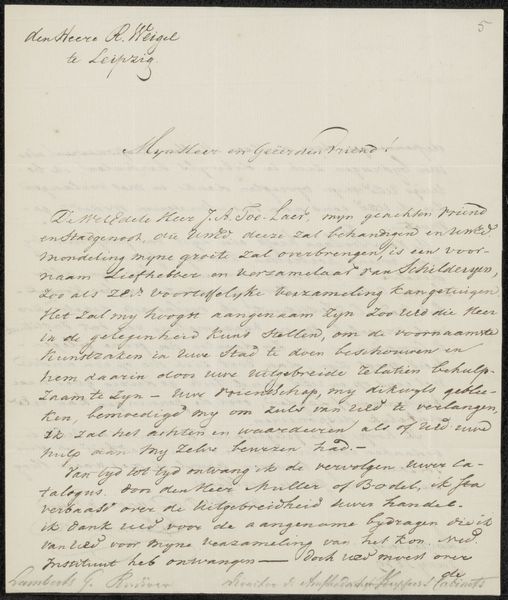
drawing, paper, ink
#
portrait
#
drawing
#
paper
#
ink
Copyright: Rijks Museum: Open Domain
Curator: Here we have B. Verpoorten’s “Brief aan Lambertus Hardenberg (1822-1900)", likely from 1848, executed in ink on paper. Editor: It looks like an old letter. It's fragile, but still feels immediate and personal. What do you make of it? Curator: As a materialist, I'm most interested in the paper itself and the ink used to create the text. Consider the social context: what kind of paper was readily available in 1848? Was it mass-produced or handmade? Who had access to it? This informs how the labor impacts artistic intention. Editor: That’s interesting; I hadn’t thought about the materials themselves having a history. Does the act of handwriting rather than printing also hold significance for you? Curator: Absolutely. Handwriting, particularly calligraphy like we see here, involved skilled labor and considerable time. Who was this letter written by? Who was it written *for*? Was there an economic power dynamic at play, perhaps demonstrated by access to tools of correspondence and, relatedly, communication? What kind of class did they come from to produce and consume art like this? Editor: So you see this letter not just as a message, but as a product of specific social conditions and available materials. It prompts us to think about the physical act of writing and communicating back in the 1800s. Curator: Precisely. And by examining these material aspects, we challenge the traditional boundaries between what is considered "high art" and everyday craft or labor. The production reveals so much about societal communication habits. Editor: That shifts my perspective entirely. I initially saw a historical artifact, but now I recognize it reflects layers of social and economic history. Curator: It is exciting to find how we might read art pieces with a deeper understanding of what constitutes materiality.
Comments
No comments
Be the first to comment and join the conversation on the ultimate creative platform.
